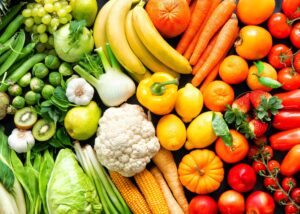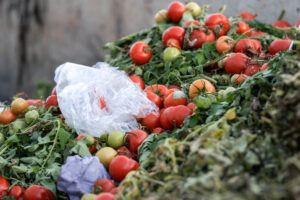December 27, 2022
Originally published in Progressive Grocer, Dec. 27, 2022
The retail food industry has faced its share of challenges and opportunities in 2022. This year brought continued COVID-19 pandemic disruptions and rising financial pressures from inflation, dramatically driving up costs for both retailers and consumers. In fact, the Consumer Price Index for food at home is now 12.4% higher than this time last year, according to the Bureau of Labor Statistics arm of the U.S. Labor Department.
Yet exciting new opportunities have emerged as well. The retail food industry has taken a more prominent position in both national and global discussions – first at the White House Conference on Hunger, Nutrition and Health in September, followed by the United Nations Climate Change Conference COP27 in November.
Given this backdrop, 2023 is poised to be an incredibly important year for the industry as grocers and retailers look to not only navigate, but also thrive, in this rapidly shifting landscape. From leveraging new data and technologies to prioritizing environmental, social and corporate governance (ESG) accountability, below are four predictions for what’s ahead in 2023 and beyond.
1. Retailers will invest in more actionable data and visibility into their perishable foods.
Retailers across the United States know that leveraging data and analytics is critical to mitigating wasted food across their supply chains. In the next year, retailers will invest in more real-time tracking data, specifically on products like fruits, vegetables and dairy, when it comes to monitoring real-time freshness.
With data-based insights, retailers can better understand variations in time, temperature and handling throughout the food journey (some of the leading causes of food spoilage) to develop best practices that maintain food quality.
This level of tracking and insights won’t just happen at an individual box and container level – we’ll also see more investment in granular, action-specific technologies laterally across the supply chain, from the farm all the way to the shelf.
Investing in more granular, actionable insights will enable retailers to have a holistic view of what’s happening within their retail environment, including a full spectrum of what they’re not selling. Those insights could easily be woven into existing business models to minimize wasted food.
2. Adoption of reverse logistics will accelerate and be the backbone of wasted-food diversion and prevention.
One of the main ways to mitigate wasted food is to prevent it from going to landfills and incinerators in the first place. To do that, though, you need efficient diversion infrastructure in place, which traditionally has been insufficient in the United States.
In the past several years, more retailers have put in place a diversion foundation, specifically in the form of reverse logistics. At a high level, reverse logistics is a simple self-managed program that leverages existing infrastructure and ordering practices to more efficiently manage foods that can’t be sold or donated.
The benefits of reverse-logistics technology are significant – they include reducing retailers’ carbon footprint, the ability of retailers to self-manage with a single solution for their storefronts across geographic locations, and diverting unsold food to local food banks or processing facilities to prevent it from entering landfills.
We’ve already seen retailers like Ahold Delhaize and CVS fold this diversion and prevention approach into their business models, and in the next year, a majority of the retail food industry will accelerate the adoption of reverse logistics, especially considering its importance to sustainability and achieving ESG goals.



